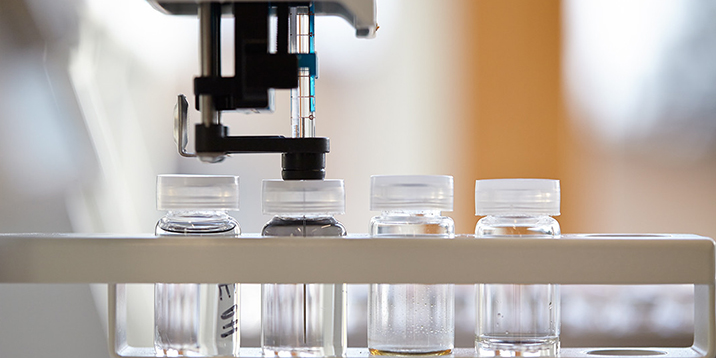
Research at the Department of Forensic Genetics and Forensic Toxicology
merThe Department of Forensic Genetics and Forensic Toxicology conducts research in four prioritised areas
The research aims to providing robust scientific evidence to support investigations conducted for RMV’s clients. As the only facility of its kind in Sweden, it produces unique data that can be leveraged for a wide range of research purposes, thereby contributing to societal benefit.
Prioritised research areas and contact persons
Advancing forensic genetics with emerging DNA technologies
Click here to send an email to the research project manager Andreas Tillmar
The use of new DNA technologies for forensic genetic purposes is an area aimed at solving cases related to forensic genetic issues by benefiting from the technological advancements that have occurred in DNA sequencing over the past decade. This includes, among other things, the study of new DNA polymorphisms and DNA markers to better address questions concerning distant kinship, the identification of human remains, and providing the police with DNA-based intelligence on unidentified persons, including details about their appearance and biogeographical ancestry.
Forensic toxicology and pharmacoepidemiology
Click here to send an email to the research project manager Fredrik Kugelberg
Interpreting and evaluating analysis results is a key aspect of forensic toxicology. By conducting controlled studies and systematically compiling results from forensic toxicological investigations, we create the foundation for improving interpretations in cases such as driving under the influence (DUI) investigations and forensic autopsies. The pharmacoepidemiologic studies utilise databases from RMV that are linked to other registries, such as the National Prescribed Drug Register and National Patient Register. This research provides significant societal value by enhancing our understanding of substance abuse patterns within the population.
New psychoactive substances
Click here to send an email to the research project manager Henrik Gréen
New psychoactive substances (NPS), so called internet drugs, continue to emerge in Europe and globally. They present a challenge both forensically and in harm reduction efforts due to their unknown pharmacology, potency, and toxicity. Therefore, there is a critical need to identify and determine the effects and abuse potential of these drugs. Current research results, such as potency and efficacy, toxicity profiles, and metabolism of these drugs, can be directly used as a basis for scheduling new drugs as narcotics, understanding their risk and interpretation in forensic toxicology cases, as well as in risk assessments in general. We are working closely with the Swedish Public Health Agency and EU’s drug agency, EUDA (previously EMCDDA), to study the pharmacological behaviour of these drugs.
Postmortem metabolomics
Click here to send an email to the research project manager Albert Elmsjö
Postmortem metabolomics, a pioneering field of research, offers a revealing glimpse into the complex chemistry of a deceased individual. By analysing the chemical signatures in blood, it helps us piece together crucial information about the circumstances of death, such as factors leading up to death, cause of death, or even estimating time of death. As technology advances and our understanding grows, postmortem metabolomics has the potential to become an invaluable tool for forensic scientists. It’s like peeking into the body’s secrets right before the final moments, making it an exciting and promising area in forensic medicine and forensic toxicology.
